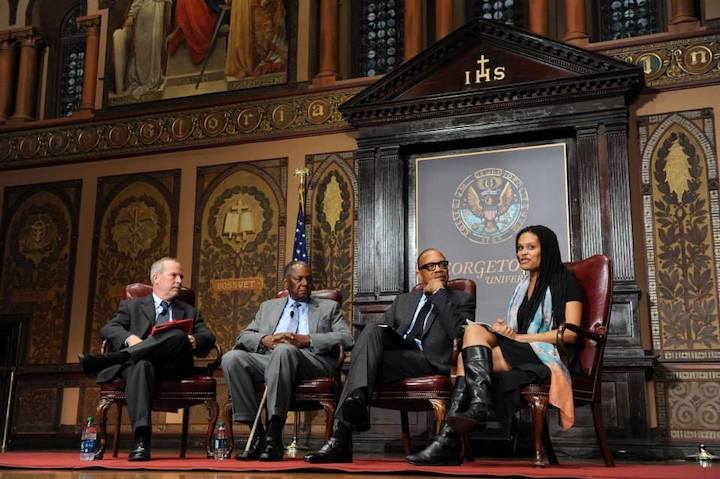Race and Economic Empowerment Project (REEP)

Like many other American cities, economic change has rapidly reshaped the landscape of Washington, D.C. Gentrification is growing in the District, caused in part by escalating housing costs, difficult-to-access job markets, and legacies of discrimination in employment, housing, and education. These trends threaten to further stratify the nation’s capital by class and race and displace growing numbers of working-class and poorer residents.
To respond to these trends, the Race and Economic Empowerment Project (REEP) combines the Kalmanovitz Initiative’s research, advocacy, and convening work with ongoing efforts by local labor, faith, and advocacy groups to advocate for a more equitable local economy. Working alongside these groups, REEP seeks policy and economic changes that benefit working-class District residents, such as expanding access to good jobs and increasing the city’s supply of affordable housing.
In April 2020, REEP’s inaugural event, a public forum via Zoom, addressed the COVID-19 pandemic and how racial and class inequalities would shape cases in DC. A second forum, held in June 2020, focused on the pandemic in the nation’s prisons and jails as an intersection of crises of criminal justice policy and public health. Our third project was a conversation about affordable housing in DC during the pandemic in September 2021. REEP also received a grant from the federal 400 Years of African American History Commission to produce a guidebook on African American labor history.
